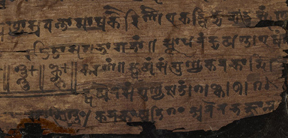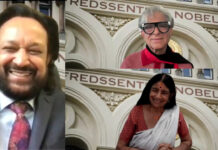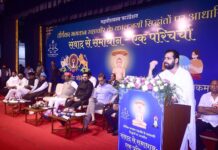
A highly significant research by University of Oxford has revealed that ancient Indian Bakhshali manuscript, dating to 3rd or 4th century, contained the world’s oldest recorded origin of the zero symbol that we use today.
The zero symbol that we use today evolved from a dot that was used in ancient India and can be seen throughout this seminal mathematical text at University of Oxford’s Bodleian Libraries, which contains hundreds of zeroes. In 628 CE, Indian astronomer/mathematician Brahmagupta wrote
Brahmasphutasiddhanta, which is the first document to discuss zero as a number.
This reaffirms the rich scientific and mathematical traditions of Hinduism and its role and contributions in the development of science and technology, Rajan Zed, President of Universal Society of Hinduism, pointed out.
Radiocarbon dating research was conducted at University of Oxford for this study on Bakhshali manuscript, which consists of 70 fragile leaves of birch bark.
India Post News Service






